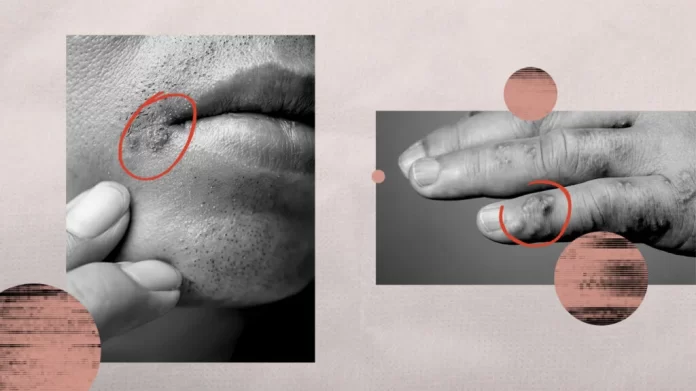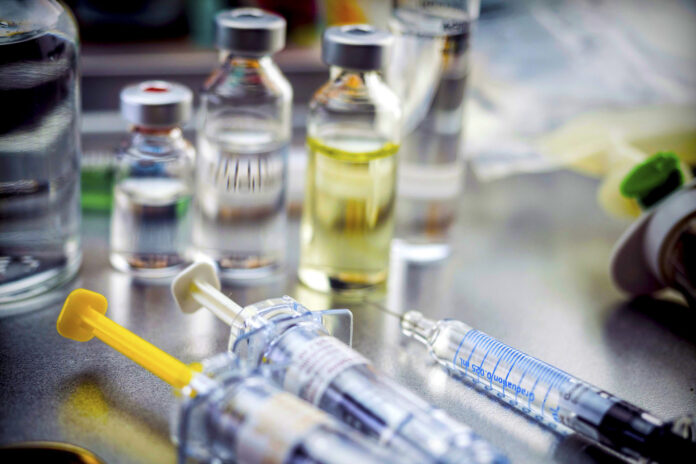Type 2 herpes (HSV-2) is spread through sexual contact and leads to genital herpes. Many people either don’t notice any symptoms or only experience mild ones. When symptoms do appear, they often include painful blisters or sores, which can come back from time to time. While medications can help manage the symptoms and make outbreaks less severe, they don’t cure the virus.
What is Herpes?
Herpes is an infection caused by the Herpes Simplex Virus (HSV), which has two primary types: Herpes Simplex Virus Type 1 (HSV-1) and Herpes Simplex Virus Type 2 (HSV-2). HSV-1 typically results in oral herpes, characterized by sores and blisters in and around the mouth. In contrast, HSV-2 is responsible for genital herpes, causing sores and blisters in the genital area, buttocks, inner thighs, and vaginal region.
How Is Herpes Transmitted?
The herpes simplex viruses are highly contagious. Both HSV-1 and HSV-2 can spread through direct contact with an infected sore, saliva, or other bodily fluids.
The skin in the genital, oral, and eye regions is particularly susceptible to infection. If you touch a herpes sore and then touch your mouth or genitals without washing your hands, you can transmit the virus. HSV-2 is primarily spread through sexual contact, and the risk of genital herpes increases with multiple sexual partners, a history of sexually transmitted infections, or a compromised immune system.
ALSO READ: 6 Health Benefits of Mango Leaves
Herpes is not transmitted through indirect contact, such as hugging, holding hands, or coughing, as the virus does not survive long outside the body. It thrives in moist areas like the genital and oral regions.
Additionally, herpes can be transmitted even when the infected person shows no symptoms due to a phenomenon known as viral shedding. During this process, the virus releases viral particles without any visible sores. Factors like a person’s immune status and how recently they were infected can influence the amount of virus shed. Generally, individuals with HSV-2 shed more viral particles compared to those with HSV-1, especially if their immune system is weakened or they were recently infected.
How is Herpes Diagnosed?
To diagnose herpes simplex virus (HSV), a doctor begins by examining any blisters. They may also inquire about related symptoms, such as flu-like symptoms, tingling, or burning sensations in the affected areas.
To confirm the diagnosis, a culture may be performed. This involves taking a sample of fluid from the sore and sending it to a laboratory for analysis.
In cases where symptoms are absent but HSV is suspected, a blood test can be conducted to confirm the diagnosis. Since there are no visible symptoms to culture, this test looks for HSV antibodies. However, it’s important to note that antibodies may not be detectable until at least 12 weeks after the initial infection.
What are The Symptoms of Oral Herpes?
Oral herpes is primarily caused by the herpes simplex virus type 1 (HSV-1). The initial symptoms typically include itching, burning, or tingling sensations around the mouth, lips, or tongue. Following these early signs, small blisters or cold sores may appear in the affected areas.
These blisters can also manifest on the face, tongue, and other parts of the skin, but they are most commonly found in the oral cavity, on the lips, and inside the mouth.
Cold sores usually take about 4 to 6 days to burst and heal by forming a crust. These outbreaks tend to be recurrent and last for 2 to 3 weeks, which is shorter than the 2 to 6 weeks commonly seen with genital herpes outbreaks.
What are the signs of genital herpes?
Genital herpes is often asymptomatic or leads to mild symptoms. The primary symptom is the presence of blistering lesions known as cold sores, typically located around the genitals, rectum, and inner thighs.
ALSO READ: 6 Health Benefits of Mango Leaves
These lesions are fluid-filled and contain the virus. When they rupture, the fluid may leak out, resulting in small, painful sores that can persist for 2 to 6 weeks. The virus remains in the body, causing these lesions to recur in future outbreaks.
Symptoms of Recurring Herpes
In addition to the cold sore outbreaks associated with both types of HSV, other symptoms that may affect the body include:
– Fever
– Headaches
– Swelling of the lymph nodes
– Eye infections
– Body aches
– Decreased appetite
– Pain at the infection site
– Recurring blisters
Herpes Simplex Treatment
It is advised to start antiviral medication at the first sign of symptoms or upon confirmation of the diagnosis. This approach can help shorten the duration of symptoms and prevent the infection from spreading quickly.
While blisters often improve on their own without medical intervention, severe or frequent outbreaks are typically managed with antiviral medications. These treatments also lower the risk of transmitting the virus by decreasing viral load and shedding.
Antiviral medications are available in both pill and cream forms.
Managing Herpes Simplex
HSV is a lifelong condition, but this doesn’t mean that individuals will constantly experience sores or pain. Herpes generally does not lead to serious health issues.
The initial outbreak is often the most painful, but subsequent outbreaks tend to become less severe and may diminish over time. Home remedies can help alleviate symptoms like pain and discomfort from blisters and lesions. Additionally, antiviral medication can reduce the frequency of outbreaks and the risk of transmitting the virus to others.
To minimize the risk of transmission and stay safe, consider the following preventive measures:
– Avoid sharing personal items, such as razors and toothbrushes, that may come into contact with lesions.
– Refrain from oral sex and direct contact if you have oral herpes until the sores have fully healed.
– If you have genital HSV, avoid all skin-to-genital contact from the onset of early symptoms until you are on medication and the sores have healed.
– Practice good hand hygiene after touching sores or applying medication.
While HSV cannot be completely cured, it doesn’t have to interfere with your daily life. By using medication, home remedies to manage symptoms, and taking preventive measures, you can effectively manage herpes. For more information on herpes and other conditions, visit the Metropolis website.



